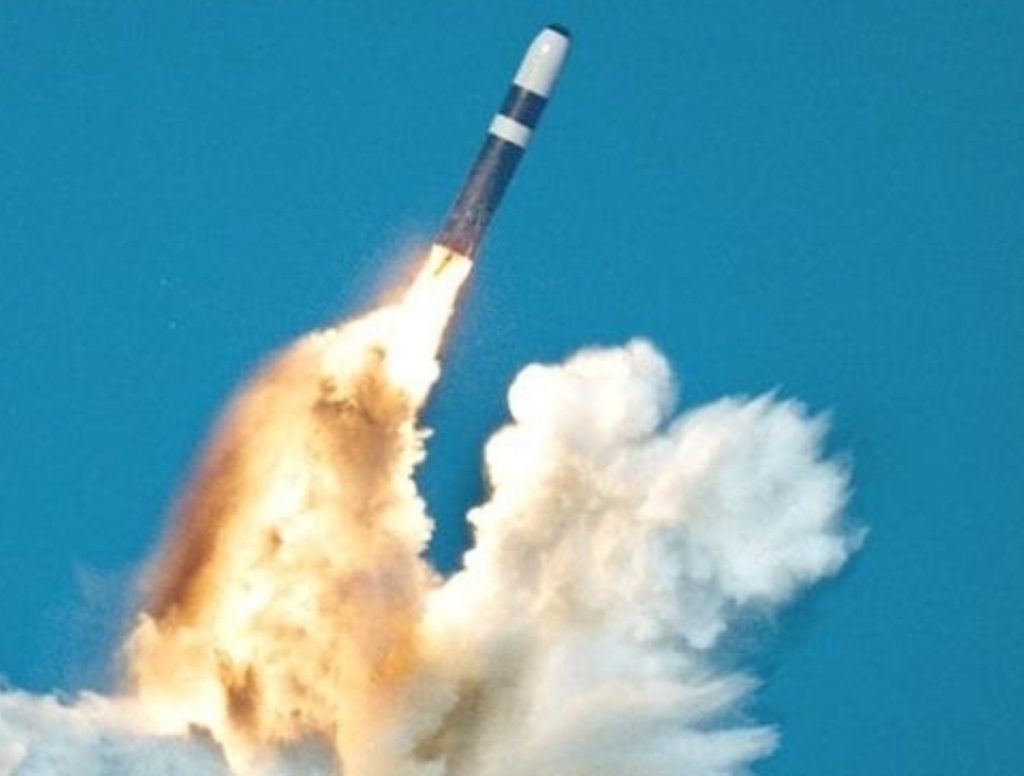Corbyn’s Trident defeat means Britain will break international law
Jeremy Corbyn's Labour conference defeat on Trident effectively ends the attempts to prevent a like-for-like replacement to the nuclear weapon system. Just 0.16% of the trade union vote and 7.1% of the constituency Labour party vote backed a debate. For the trade unions, it's a jobs issue, not a moral or military one. For most constituency parties, it's an irrelevance – a throwback to the 1970s
Without a debate, Labour remains officially committed to supporting a replacement. Pro-Trident frontbenchers, like deputy leader Tom Watson or shadow foreign secretary Hilary Benn, can now vote with the vast majority of Tory MPs for renewal. With the Lib Dems reduced to just eight MPs, anti-Trident Labour MPs don't have a chance of killing it off at the main 'gateway' decision stage, even when you add parliament's 56 new SNP MPs to the equation.
The debate over Trident's successor is dead. Britain will almost certainly have a continuous at-sea nuclear weapon until the 2040s, at the cost of about £25 billion and £1.5 billion a year running costs.
We're told this is the moderate, grown-up, common sense view. If so, the world has been turned on its head. The like-for-like replacement is probably illegal, financially insane, militarily nonsensical and morally intolerable.


British politics has somehow reached a stage where the contravention of a major international treaty is now the only reasonable belief one can hold.
The nuclear non-proliferation treaty, to which Britain has been a signatory since 1970, says that signatories should pursue "negotiations in good faith on effective measures" for slowing the nuclear arms race and achieving nuclear disarmament.
A legal opinion from Rabinder Singh QC and professor Christine Chinkin in 2005 found that a Trident replacement is "not conducive to entering into negotiations for disarmament" and "evinces no intention to 'bring to a conclusion negotiations leading to nuclear disarmament in all its aspects'."
Of course, none of this is mentioned when Britain goes around the world telling Iran, North Korea and the others to abide by the treaty. The hypocrisy of Britain's position is utterly glaring, but it is almost never mentioned in press coverage of the Trident issue.
There's even an argument that replacement encourages the proliferation of nuclear weapons – one of the few aspects of the treaty which has so far been successful. As Kofi Annan told the UN:
"The more that those states that already have [nuclear weapons] increase their arsenals, or insist that such weapons are essential to their national security, the more other states feel that they too must have them for their security."
We don't have to unilaterally scrap Trident. All that is really required for Britain to abide by the treaty is to reduce its nuclear capacity while replacing it. But we failed to do that in 1980, when we replaced Polaris with Trident, whose warheads could be independently aimed to achieve the destruction of a much greater range of targets across a greater range of delivery. As the Lib Dems suggested while in government, we could sacrifice the continuous at-sea nature of the weapon and still keep our deterrent while abiding by the treaty and leading the world by example.

Downgrading Trident would actually be the preferred option among members of the public. A 2013 YouGov poll found 35% of members of the public supported replacement with a less powerful and cheaper deterrent, while 25% favoured like-for-like replacement. A quarter wanted it scrapped.
Generally speaking the public are supportive of the nuclear deterrent. But dig a little deeper and the support is fickle. A 2005 survey found that when you inform people that the cost of Trident is £25 billion, a majority opposes its replacement.
The figures on nuke usage are fascinating. Just nine per cent of people support using nukes against a conventionally-armed foe. Even where a state had used nukes against Britain, only 53% of people would support Britain using them in response.
When you drop the military jargon and discuss what a nuclear weapon actually does – murders millions of men, women and children – most people are instinctively uncomfortable with them. Only a psychopath would be OK with the notion. But apparently countenancing a global war crime is the only adult position one can hold on the issue.
Despite Corbyn's best efforts, that debate is now off the table. But let's not pretend the moderate position has won.









